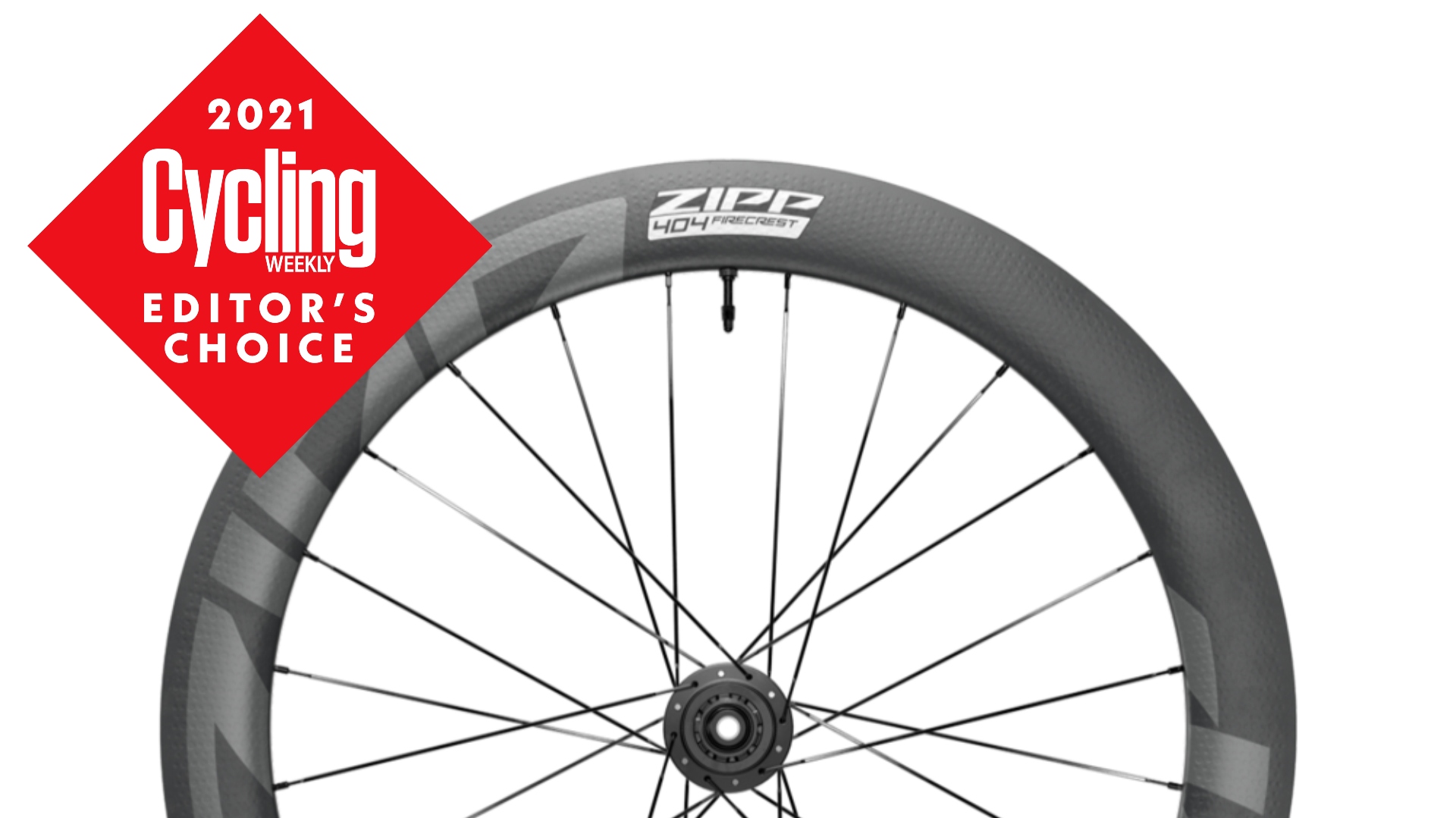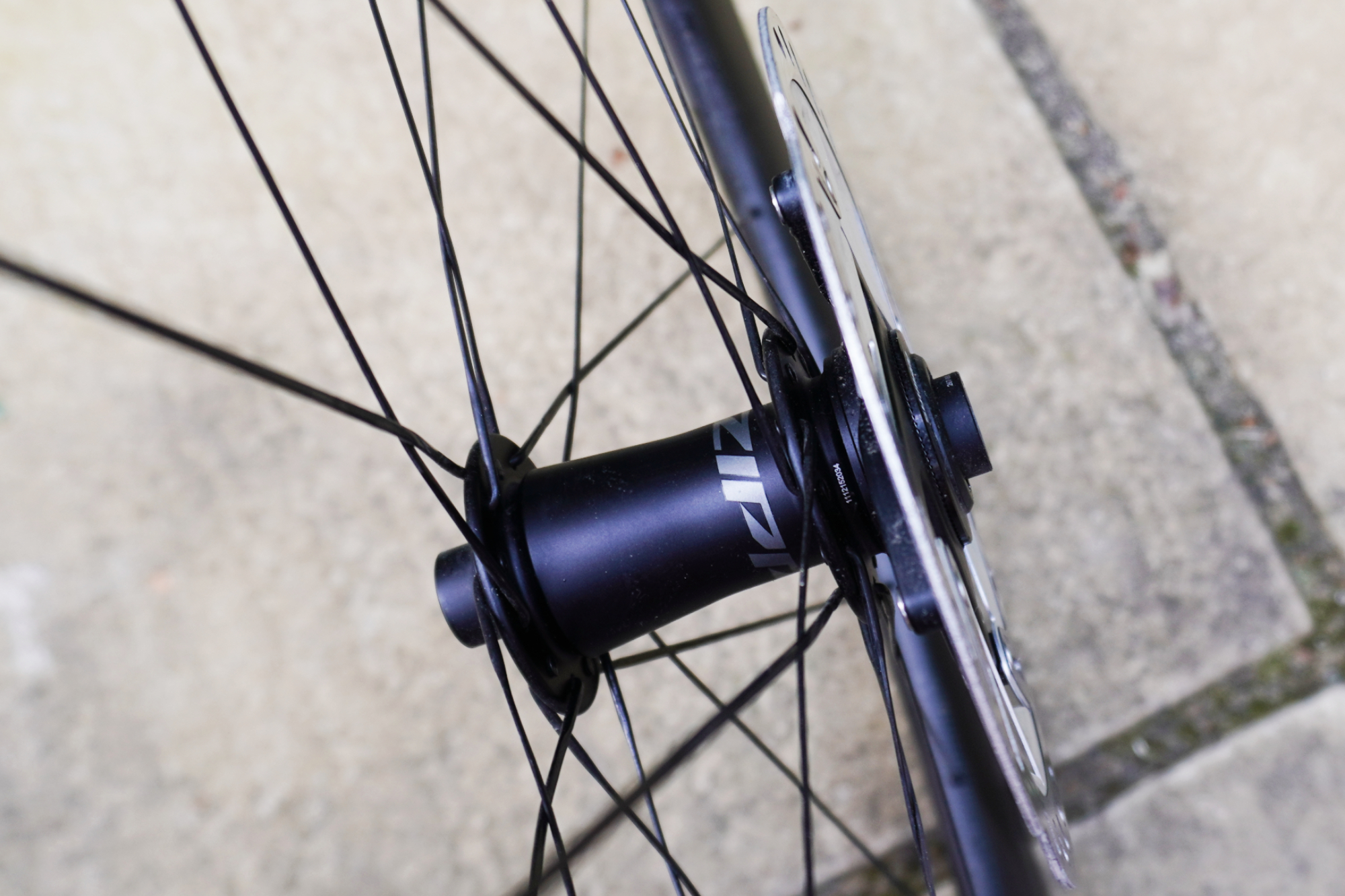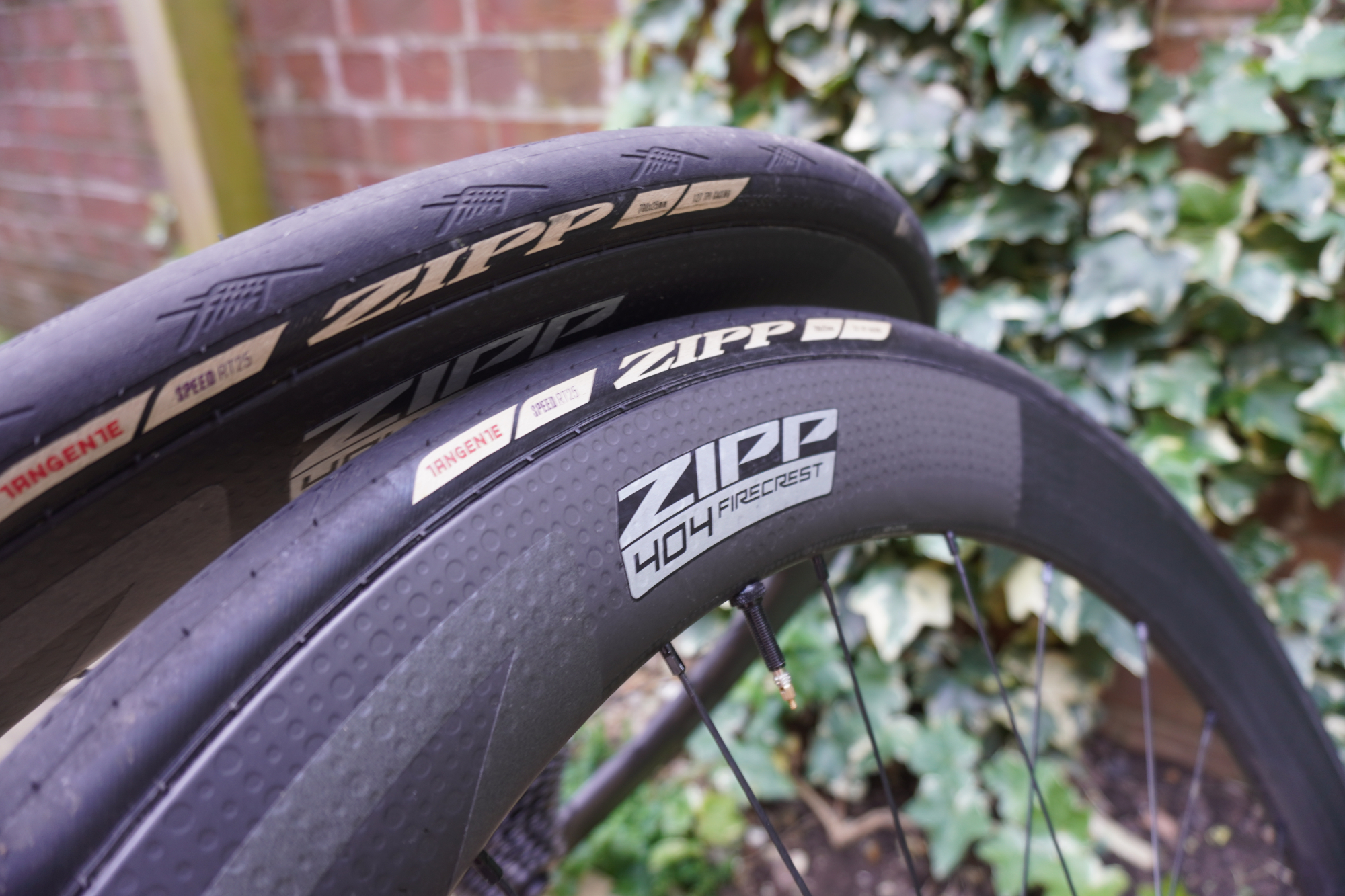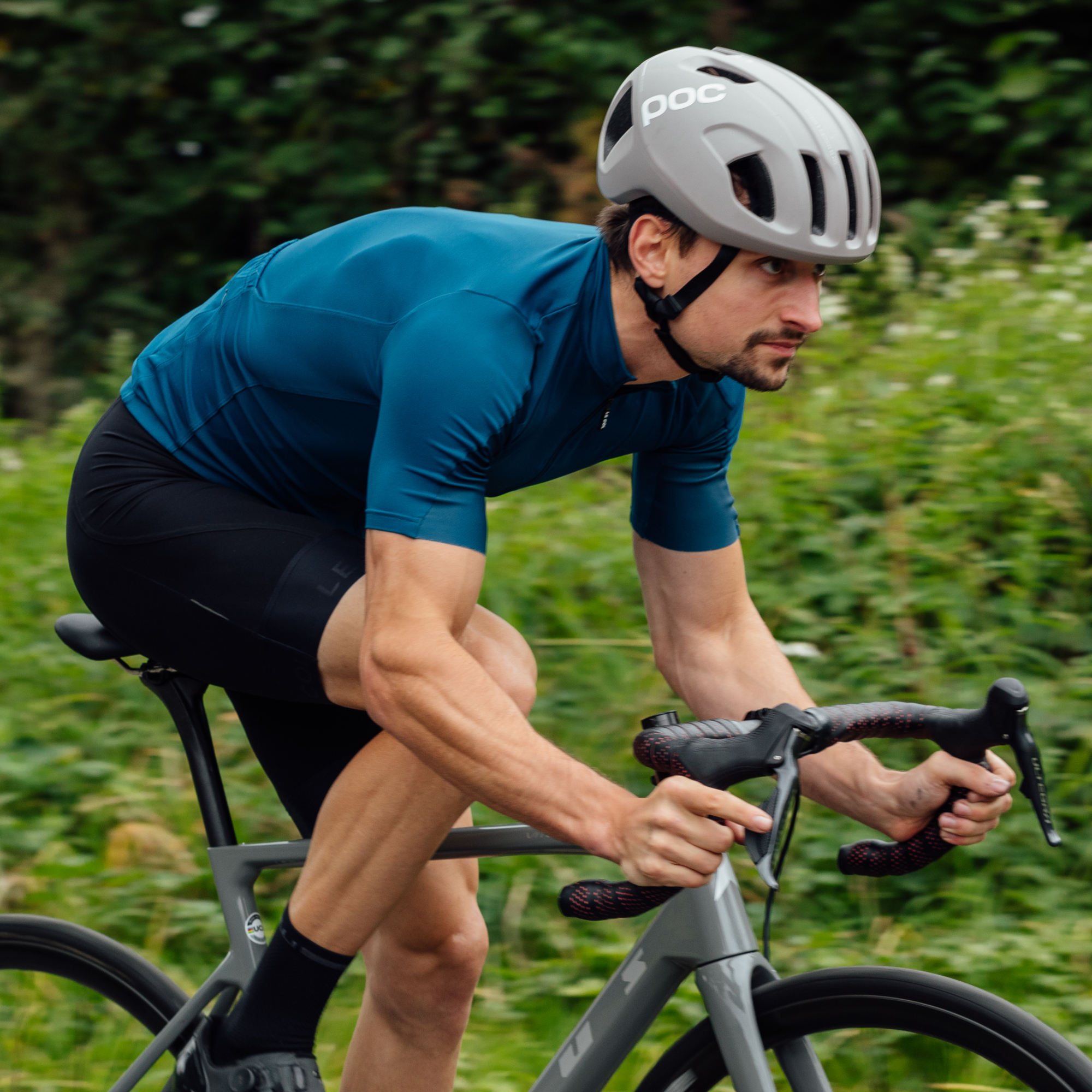Zipp 404 Firecrest review
An exemplary blend of weight and depth, these wheels make an excellent all-rounder

The Zipp 404 Firecrest wheels combine a relatively light weight (1,428g, measured) with a 58mm deep rim. The result is a wheelset which delivers a real boost when riding at speed – but that also is responsive to accelerations and a rapid climber. It’s a fantastic all-rounder and is a great choice for most terrains.
-
+
Wide 23mm internal width provides good support and plumps out the tyres
-
+
58mm deep section rims feel fast and are impressively stable in cross winds
-
+
Lightweight at 1,528g (measured, with rim tape) for the set
-
-
Despite a £800 price reduction, still more expensive than rival brands
-
-
Hookless rims limit tyre choice
You can trust Cycling Weekly.

Zipp’s 404 Firecrest road bike wheels combine 58mm deep rims with a low 1,528 gram weight, pitching these firmly as part of that new generation of the best road bike wheels which are fast on the flat but can hold their own on the climbs too.
Back in 2020, Zipp made some pretty major changes to the rim design of its wheels. Internal and external widths became much greater and hooks gave way to hookless – allowing for lighter wheels at a lower cost. These updates have been rolling out across the whole range, so if some of these elements sound rather familiar, it’s because they are.
And the updates have yielded some great results, we’ve been extremely impressed by the 303S, 303 Firecrest and the 353 NSW wheels – and so the similar changes to the 404 Firecrest are a welcome edition.
So, let’s run through the specs before getting into what they’re like to ride.
Zipp 404 Firecrest: the specs
Starting with the rim profile, the internal width comes in at 23mm – which is wider than even some gravel wheelsets. This provides a bit more support for the sidewalls and allows the tyres to be run at lower pressures. This, in turn, is an advantage, as lower pressures enable the tyre to conform better to the roads’ imperfections, meaning less energy is wasted in being ‘pinged’ about.
With such a wide internal rim width, tyres badged up as 25mm end up plumping out to a much wider measured width. The Zipp Tangente tyres ended up coming in at 27.75mm, which was a pretty perfect match for the 27.5mm external rim width of the wheels – and made all the more seamless by the hookless rim profile.

Now, in making the switch the hookless rims, these wheels aren’t compatible with clincher tyres. So if you’re planning on using tubes, you’d probably be best served by something else. But on the other hand, the switch to hookless has enabled Zipp to greatly reduce the weight of the rims, as less material is required with that design. And as a less complex shape, the cost of manufacturing has also been decreased.
The latest race content, interviews, features, reviews and expert buying guides, direct to your inbox!
To put some numbers on it, the RRP has reduced by £800 to £1,600 a pair and there’s been a claimed weight reduction of 350g. The actual weight of our wheelset came in at 1,528g, which is quite competitive considering the rims are 58mm deep. To be clear, that weight is with rim tape and a SRAM XDR freehub body, but without valves and disc rotor lockrings.
Moving a little further inwards, the spoke nipples are external, for ease of trueing, while the spokes themselves are aero-bladed J-bend items, which number 24 per wheel.

Further in again we get to the ZR1 DB hub, which has an updated seal design to improve durability and runs on steel bearings. Given the high cost – and marginal benefits – high-quality ceramic bearings provide, the presence of steel bearings on a wheelset at this price point is arguably more reassuring.
Switching freehub body – and the standard 12mm end caps – is a very straightforward affair, simply pulling straight off. When it comes to the hub engagement, the angle is quite low at 5.45 degrees, compared to 10 degrees being typical and some freehubs being as high as 20 degrees. This is arguably less important with the larger gears of a road bike, as opposed to a mountain bike or low-geared gravel bike, but nevertheless, it should lead to a very fast pickup.
Zipp 404 Firecrest: the ride
I’ve ended up setting these wheels up with both a set of Schwalbe Pro One 25mm tyres and also the 25mm Zipp Tangente tyres you can see in the photos. The Schwalbes I’ve used on a variety of rims and my experience with the Zipps was pretty typical – I did need the assistance of a tyre lever to coax them on, but it certainly wasn’t a struggle.
Once on, the tyres held air really quite well – not quite as good as a tubed setup, but if I was feeling lazy I could go a few rides before topping up the pressures. With the Tangente tyres it was a very similar story, they were perhaps a little easier to pop on – I could have done it with my thumbs if I cared to – and they held air as well as the Schwalbe Pro Ones.

Now, although this is a review of the wheels, rim profile has such a large effect on the tyres – which in turn is what the feel of the wheels is mediated through – it is worth going into a little bit of detail on them.
First, I should mention that my inclination is generally for wider tyres. The increase in grip, comfort and the better functionality with tubeless sealant are all quite a draw. For the times when speed is the priority, I'll generally reflect that by opting for 28mm tyres over 25, but the Zipp 404 Firecrests have convinced me otherwise.
That wide internal rim width allowed me to run pressures a little lower than I generally would with a 25mm tyre. Combined with the plumped out carcass, I felt just as planted through the corners as when running nominally wider tyres, as well as feeling just as well isolated from the road buzz.
Being designed for best performance with a 25mm tyre, a bit of weight is saved over a wheelset designed for 28s – and part of what made these wheels so enjoyable to ride is their relatively low weight.
It really didn't feel like I was running a set of wheels with a depth around the 60mm mark. For quick accelerations and any time the road tilted up, I felt like I was running a much shallower wheel – they weren't even particularly grabby in crosswinds and when passing a sudden gap in the hedgerows.
When it came to tapping along on the flat, the 404 Firecrests made good on their aerodynamic promise. Whether the exceptionally smooth transition between tyre and wheel made them a little more slippery than other wheels of a similar depth, I couldn't really say. But they did make rolling along at 30kph a doddle and even holding 40kph didn't send me into oxygen debt (although that was on an essentially flat circuit with very gentle corners).
Zipp 404 Firecrest: value and conclusions
In terms of value, although the Zipp 404 Firecrest wheels are now £800 cheaper than what they once were, at £1,600, they are still a considerable investment.
The Parcour Strade wheelset is optimised for 28mm tyres, is 10g lighter at 1,520g (measured), and is significantly cheaper at £1,049.00. However, it is shallower at 49/54mm, so might not deliver quite the same aerodynamic gains.
The Hunt 54 UD Carbon Spoke wheels are, like the 404 Firecrests, also optimised for 25mm tyres but manage to be 30g lighter at 1,500g (measured). Retailing at £1,389, they are cheaper, but with a depth of 54mm, they are shallower than the 58mm deep Zipp 404 Firecrests.
The combination of aerodynamic efficiency and relatively low weight was a pretty great pairing. For around the same price, you could get a lighter set of wheels and a deeper section (likely more aerodynamic) wheelset, for better performance on the climbs and on the flat. But generally, rides will have a mix of climbing and flat, so I'd much rather spend my money on one wheelset which does both.

After winning the 2019 National Single-Speed Cross-Country Mountain Biking Championships and claiming the plushie unicorn (true story), Stefan swapped the flat-bars for drop-bars and has never looked back.
Since then, he’s earnt his 2ⁿᵈ cat racing licence in his first season racing as a third, completed the South Downs Double in under 20 hours and Everested in under 12.
But his favourite rides are multiday bikepacking trips, with all the huge amount of cycling tech and long days spent exploring new roads and trails - as well as histories and cultures. Most recently, he’s spent two weeks riding from Budapest into the mountains of Slovakia.
Height: 177cm
Weight: 67–69kg